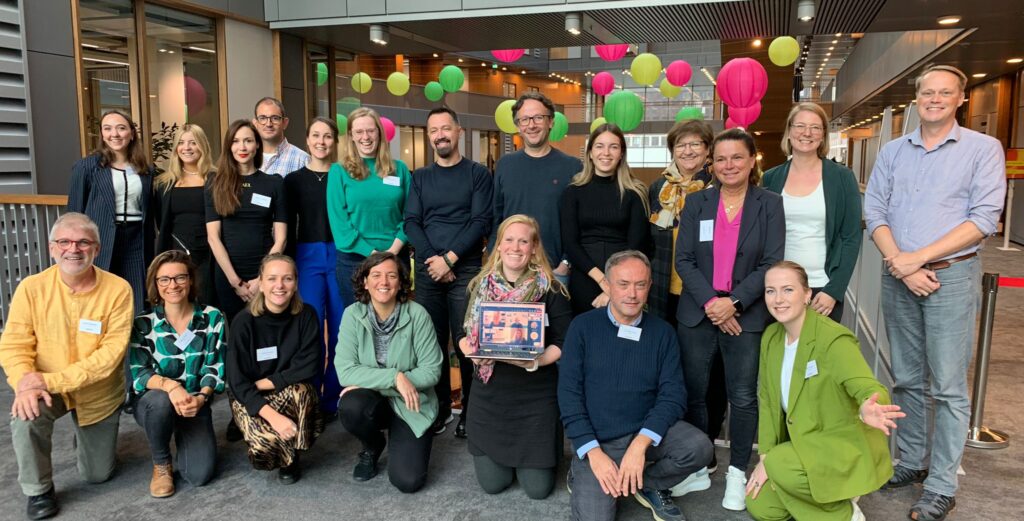Inisghts from the first PIECES project workshop in Amsterdam
The PIECES Consortium, comprising a Horizon Europe-funded collaborative team of cancer prevention experts and implementation scientists, recently gathered in Amsterdam on November 2nd and 3rd for a pivotal meeting aimed at piloting and designing an advanced primary cancer prevention implementation toolkit (PCP-IT) that is being designed to facilitate the implementation of cancer prevention interventions. The PCP-IT, currently in development, is set to play a crucial role in both selecting and implementing evidence-based primary cancer prevention programs.
Hosted by the UMC Amsterdam team leaders of WP2 within the PIECES project and the Trimbos Institute team, both based in the Netherlands, this gathering marked a significant milestone in the ongoing efforts of the PIECES Consortium. Their mission is to reduce the global burden of cancer by implementing interventions targeting six cancer risk factors, including tobacco smoking and second-hand tobacco smoke exposure, diet, physical activity, alcohol use, sun exposure, and human papillomavirus infection (HPV).
The primary focus of the meeting centered around testing and improving the Tool Kit’s in streamlining the process of selecting and adapting existing evidence-based cancer prevention programs to suit specific local settings, contexts, and populations. The Tool Kit holds the promise of being a transformative asset within the field, as it aids stakeholders in identifying discrepancies between original programs and the unique environments in which they will be deployed. This critical step lays the foundation for more tailored and impactful cancer prevention strategies.
Key objectives of the meeting included:
- Testing the conceptual ideas behind PCP-IT: Consortium members engaged in hands-on testing of the Tool Kit’s capabilities, exploring how it can facilitate the selection of the most suitable cancer prevention programs.
- Stakeholder Analysis: Participants delved into stakeholder analysis, recognizing the vital importance of involving all relevant parties to ensure the successful implementation of programs.
- Mismatches Identification: The consortium explored methods to pinpoint discrepancies between existing programs and their target settings, contexts, and populations.
- Adaptation: Discussions centered on the utilization of adaptation models to refine cancer prevention programs, enhancing their relevance and effectiveness in diverse scenarios.
- Designing Implementation Plans: The meeting included planning for the tailored implementation of selected programs, ensuring they align with the unique needs of each location.
Based on this workshop, the PCP-IT will enter the next phase of development. This includes development and implementation of an online platform, technical testing of the platform, and a large-scale evaluation of the effects and usability of the toolkit in multiple implementation sites in eight different countries. This real-world testing will assess the feasibility of the Tool Kit in assisting with implementing cancer prevention programs targeting the six identified risk factors. By involving a diverse range of countries and contexts, the PIECES Consortium aims to create a universally effective tool in the global fight against cancer.
PCP-IT is based on existing evidence-based implementation toolkit developed in another large-scale European research project, the ItFits-toolkit. In the end, the toolkit will be available in local language, include state-of-the art evidence-informed materials on barriers and implementation strategies, step-by-step proven work processes and tools to engage with stakeholders, and an online community of implementation practitioners working in the same area to improve implementation of evidence-based cancer prevention programs around Europe.
The potential impact of this collaborative effort is significant and holds the promise of enhancing cancer prevention initiatives worldwide, ultimately resulting in more effective and targeted programs. As the PIECES Consortium continues to work diligently on this innovative project, there is hope that this Tool Kit will become a valuable resource for implementers and other stakeholders dedicated to reducing the global cancer burden. Stay tuned for further updates on this exciting development in cancer prevention.
